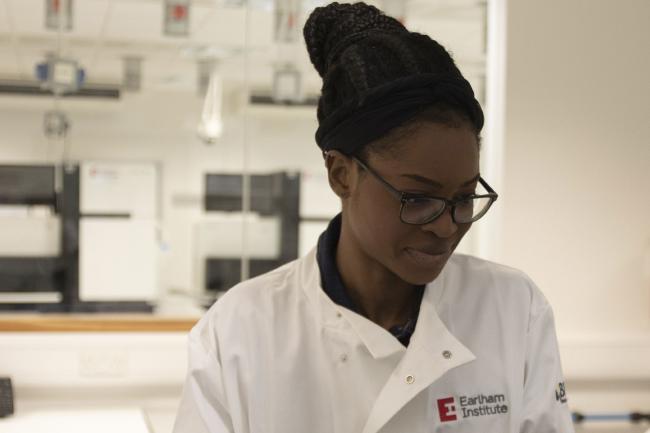
- How Long Does A PhD Take?
- Doing a PhD
Sometimes, just knowing how long a PhD takes can be enough to sway your decision on whether a research degree is for you. So with that in mind, exactly how long does a PhD take?
In the UK, a full-time PhD takes 3 to 4 years to finish whilst a part-time PhD takes twice as long at 6 to 7 years. Alongside these average durations, there are time limits on how long you can be enrolled on to a PhD programme. To discover these limits, the factors which most influence doctoral degree durations and how the UK durations compare to international PhDs, continue reading on.

How Long Does It Take to Get a Full-time PhD?
In the UK, a full-time PhD will typically take you 3 to 4 years. You will usually spend the first three years on the technical aspects of your doctorate. This includes undertaking independent research, designing your research methodology and collecting and analysing data. You will then spend an additional academic year on writing up your PhD thesis and sitting your viva.
How Long Does It Take to Get a Part-time PhD?
In the UK, a part-time PhD will typically take you 6 to 7 years; twice as long as doing a full-time PhD. The reason for this is that as a part-time PhD student, you would dedicate around 20 hours per week to your PhD as opposed to the typical 40 hours full-time students would put into their subject.
How Long Does a Distance Learning PhD Take?
Similarly, distance learning PhD’s take an average of 6 to 7 years to complete. This is because the vast majority of students who undertake a distance learning PhD do so because they can’t relocate closer to the university. Although these commitments will differ, they often mean the student isn’t able to dedicate 40 hours per week to their studies.
Students in STEM disciplines will often take longer to finish a distance learning doctorate degree than those in non-STEM disciplines. This because the progress of a STEM PhD student will be limited by how often they can access a laboratory for experiment work.
How Does Funding Impact a PhD’s Duration?
In reality, the actual time it will take you to complete your PhD degree will depend on your funding situation.
If you’re receiving funding , it will usually only cover you for 3.5 years if you’re studying full-time or for 7 years at half the stipend if you’re studying part-time. Although this could vary slightly, most PhD funding providers, e.g. Engineering and Physical Sciences Research Council (EPSRC), follow this timescale as indicated on their ‘ length of PhD studentships’ page. Because of this, most students who obtain scholarships try to complete their PhD within the timeframe of their funding so they don’t incur additional fees which they need to cover themselves.
It’s also worth noting that some funded PhD positions have additional conditions attached to them as part of their eligibility requirements. For example, they may require teaching undergraduate students, hosting laboratory sessions or attend presentations and conferences. This will be especially true if you’re on a Graduate Teaching Assistantship (GTA). Although these shouldn’t add considerable time to the length of a PhD programme, they have the potential to do so if they aren’t managed properly.
As self-funded students cover their own annual tuition fees and other associated costs, how long they’ll spend to complete their PhD project will largely depend on their own personal financial situation. Because of this, most self-funded PhD students find it best to complete their PhD study in the shortest time-frame they can manage.
Are There Deadlines?
Yes – unfortunately, all good things must come to an end! Within the UK, the deadline for your PhD is defined as the last date which you must submit your final thesis by. This date is set by your university’s overall regulations and varies depending on the arrangements of your PhD, e.g. whether it’s full or part time. In the vast majority of cases, the adopted deadlines are four years for full-time PhDs and seven years for part-time PhDs from the date you were officially registered onto your programme, as shown below from the University of Leicester’s registration guidance page .

This time-frame may vary from university to university. For example, the University of Sheffield adopts an additional year for part-time PhDs as shown below.

Can I Complete It Faster?
Although it’s possible to complete a full-time PhD in under 3 years, it’s a significant feat that’s rarely heard of. When these feats occur, they’re usually where the doctoral student already has extensive knowledge and experience in their field before undertaking their PhD.
Whilst it’s possible to complete a part-time PhD in under 6 years, it largely depends on your commitments outside your studies. For example, if you have a part-time career alongside your PhD, it’s unlikely that you’ll be able to commit the additional hours required to complete your doctorate a year faster.
However, if instead of a steady part-time job you take on occasional work as a freelancer, you’ll be able to set aside many more hours towards your doctoral degree.
Will Having only A Bachelor’s Degree or Being an International Student Limit My Rate of Progression?
Not at all. While there are benefits to having a Master’s degree such as an additional year of learning and greater research experience due to your fourth-year dissertation project, this doesn’t mean not having one would limit you. A PhD is very different to both Bachelor and Master degrees due to being heavily research-based, therefore, both types of students will have just as much to learn on their way to completing their doctorate.
Similarly, whether you’re an international student will bear no influence on the duration of your PhD.
Finding a PhD has never been this easy – search for a PhD by keyword, location or academic area of interest.
How Does This Compare to the Duration of EU and US PhDs?
PhD hosted by universities within the EU, such as those in France, Norway and Spain, have the same programme structure as those within the UK. As a result, there are no noticeable differences in the time to complete a doctorate between UK and EU institutions.
However, this is not the case in the US. Compared to PhDs conducted within the UK or EU, PhDs conducted within the US take considerably longer to obtain. According to a 2017 study conducted by the National Science Foundation, a US government agency which supports research and higher education, the average time to get a PhD within the US is 5.8 years. Besides this, the average completion time can further increase depending on the disciplines. For example, they found doctorates within the humanities and arts to take an average of 7.1 years to achieve.
The primary reason for this difference is the way PhD degrees are structured within the United States. As mentioned previously, PhDs conducted within UK and EU universities are essentially broken into two sections – one covering the analytical aspects and the other covering the writing up aspects. However, within the US, doctorate programmes comprise additional sections. PhD students are first required to undertake 2 to 3 years of courses, which cover a broad range of topics related to their schools’ discipline. This is then followed by coursework and several examinations, which only once passed can the PhD candidate then start working on their research project and dissertation.
Browse PhDs Now
Join thousands of students.
Join thousands of other students and stay up to date with the latest PhD programmes, funding opportunities and advice.
How Long Is a PHD UK?
- Katie Baker
- September 26, 2023

For full-time students, a PhD in the UK typically takes three to four years. For PhD candidates who opt to study their doctoral research around work or other commitments, completing a PhD can take six to seven years. Thesis deadline extensions can be granted for up to four years; however, this will always be at the university’s discretion.
Whether you want to complete your PhD in the UK full-time or part-time; it is a big commitment, which shouldn’t be taken lightly. The gratification may not be immediate, but the rewards can be lifelong when considering the professional careers that are more accessible for PhD holders, the increased earning potential and the sense of satisfaction that comes with creating unique knowledge and gaining a title only a minute fraction of the global population will only acquire.
How Long Is a PhD UK?
In addition to the average durations for part-time and full-time PhD study, there are additional time limits on how long students can be enrolled on a PhD program; this applies to students who have self-proposed their research idea and students who have been selected for a PhD program with pre-defined aims and objectives.
Full-Time and Part-Time PhDs in the UK
Typically, from start to finish, a full-time PhD in the UK will take 3 – 4 years to complete. Most full-time PhD students will spend the first three years undertaking independent research with the support of PhD supervisors, designing research methodology, collating data and analysing it. Most students will then take an additional academic year to write their thesis and sit their oral examination.
Of course, these timelines will vary with every PhD candidate. Some PhD students start their doctoral research with a solid idea of how they will approach their methodology and thesis, while others will need to go through more of a process of trial and error. Some PhD students get to the writing up stage quicker than others, writing a thesis should never be a race to the finish; doctoral research is a valuable and vital contribution to academic knowledge.
More often than not, it is a once-in-a-lifetime opportunity to dedicate your time and energy to research. Although, it isn’t unheard of for people to have multiple PhDs.
For part-time PhD students, researching, collecting data and outlining it concisely in your thesis typically takes twice as long. This timeframe is based on the assumption that part-time PhD students will dedicate 20 hours weekly to their doctoral research, while full-time students will, on average, spend 40 hours a week on their PhD.
Of course, there is no clocking in or out when you are a PhD student. The vast majority of your time will be spent partaking in independent research, and there will always be periods that are busier than others. Many PhD students find that the writing-up stage is the busiest.

How Long is a PhD for Distance Learners in the UK?
Completing a PhD by distance learning is similar to being a part-time PhD student. Many distance-learning doctoral students need six to seven years on average to finish their research, thesis, and viva. This timeframe typically boils down to how much time PhD candidates need to spend commuting to universities, which usually restricts the ability for full-time learning.
The duration for distance learners is also highly dependent on the research in question. For example, PhD students digging into STEM research will take longer to complete their doctoral degrees – compared to those conducting research into non-STEM disciplines, such as the arts, humanities and social sciences. For non-STEM disciplines, students can conduct the majority of their research remotely, whereas STEM students will need access to labs or other equipment to carry out their experimental work.
Does Funding Affect PhD Duration in the UK?
In an ideal world, funding wouldn’t affect how much time a PhD student can dedicate to their research and thesis. Unfortunately, for many full-time, part-time, and distance-learning PhD students, funding is a primary factor in the duration of their studying.
Typically, funding and studentships will only cover PhD students for three and a half years for full-time students, while part-time students can expect funding for seven years at a rate of half the stipend. However, this depends on the program you have applied for, and who is providing the PhD funding.
For example, if you are a physical sciences or engineering student and your funding is being paid by the EPSRC, you will need to follow the timescale which is indicated on their length of PhD Studentship guidelines. Due to this timeframe, most students funded by the Engineering and Physical Sciences Research Council aim to complete their PhD within 3.5 years. Failing to complete the PhD within the 3.5-year timeframe could incur additional fees, which need to be independently covered.
Furthermore, several funded PhD positions and programs have additional components attached to the eligibility requirements that require PhD students to undertake duties such as undergraduate teaching, laboratory session hosting or attendance at conferences and presentations. Even though these additional conditions shouldn’t prolong the duration of your PhD to an excessive degree, they can marginally add to the time it takes to complete a PhD program. For PhD candidates with these kinds of studentships and funding agreements, it is vital to have exceptional time management skills.
Finally, self-funded PhD students can also feel constricted by their financial situations and feel the pressure to complete a PhD quicker than students who enjoy the security of attached funding. In addition to annual tuition fees, there are other associated costs and living expenses to account for. However, this isn’t always the case; some self-funded PhD students feel free to take their time to ensure their research is as valuable as possible.
PhD Deadlines in the UK
Each university in the UK has its way of setting deadlines. However, typically, the PhD deadline for full-time and part-time students is the date by which you need to submit your final thesis.
For most UK universities, the deadline date is four years on from the start of your doctoral degree for full-time students and seven years for part-time PhD students. The start date will be when you were registered for the PhD program. Some UK universities also opt to set a minimum period of years or adjust the timeframe around relevant integrated studies.
Can PhDs Be Completed Faster Than the Average Timeframes?
While full-time students can complete their PhDs within two years or even 12 months from enrolling on their program, it certainly isn’t something that you should realistically aim for. Completing a PhD in under three years is a significant achievement, so much so that it is rarely heard of in the UK.
The only students who have managed to complete their PhD thesis and pass their viva are students who enrolled on a program with extensive pre-existing experience and knowledge.
It is marginally more common for part-time students to complete their PhD in under six years. This largely depends on existing experience and knowledge and which commitments you are studying around. If you are a PhD student with part-time employment, it is highly unlikely that you will have the time to complete your PhD a year sooner; attempting such an achievement could leave you at risk of burnout. Alternatively, if you are a freelancer and your workflow often permits you to dedicate more time to your PhD, it can be possible for you to allocate more time to your research and writing.

Other Factors in the Rate of Progression for PhD Students
Many international students who choose a UK university to complete their doctoral research wonder if it will take longer to complete their PhD compared to domestic students. The good news is, as an international student in the UK, there is no indicative data to dictate that your period of study will be longer.
Similarly, students who chose direct entry into a PhD program from a bachelor’s degree instead of studying a master’s degree beforehand are often anxious that they will find it hard to keep pace with their master’s degree-holding counterparts. Again, no evidence only holding an undergraduate degree will limit the rate of progression. A PhD differs from a bachelor’s and most master’s degrees due to its independent research focus; there are no right answers or curriculums to follow. With that being said, studying a Master’s degree before a PhD could help you to get more acquainted with a speciality topic, which was only briefly introduced to you in your bachelor’s degree.
EU & US vs UK PhD Durations
UK PhD programs follow the same structure and timeframes as European PhD programs. However, there is a slight difference compared to US PhD programs, which take longer to complete, based on a 2017 study. The study revealed that it takes 5.8 years on average to complete a PhD in the US.
The average timeframe is even longer when looking at arts and humanities PhDs in the US; they typically take 7.1 years to obtain. The primary reason for this is the additional directed study requirements imposed on US PhD candidates.
Is a PhD worth it?
So, you might be asking yourself, is a PhD worth it ? Well, that’s subjective. career prospects for students upon finishing their PhD will be influenced by the nature of their research as well as their prior experiences and skills. While we can’t outline all potential job opportunities, it’s important to recognise that numerous diverse paths and organisations typically seek individuals with specialised expertise and advanced educational qualifications.
You might also like

Do You Get Paid for a PhD?
Do You Get Paid for a PhD? For many students who don’t have the luxury of never worrying about money, one of the main considerations

Where Can a PhD in Finance Take Me?
Where Can a PhD in Finance Take Me? In the dynamic world of finance, a PhD is not just an academic accolade; it’s a launchpad

Should I Do a PhD in London?
Should I Do a PhD in London? Embarking on a PhD journey is a significant decision, one that shapes your academic and professional future. Once
Enquire with us
We are here to help and to make your journey to UWS London as smooth as possible. Please use the relevant button below to enquiry about a course you would like to apply, or to clarify any questions you may have about us and our admission’s process. After you submit your enquiry, one of our advisers will get back to you as soon as possible.
Imperial College London Imperial College London
Latest news.

Analysis reveals new insights into global surge of Strep A infections

Imperial increases support for at-risk academics to continue their research

AquaBattery raises €6m in seed funding to deploy flow battery technology
- Postgraduate doctoral
- Application process
- Choose a course
Looking for funding?
Use our scholarships search tool to look for available scholarships. Also explore our latest funded PhD vacancies .
A PhD (Doctor of Philosophy) is the most common type of doctoral degree and the highest level of academic qualification you can achieve.
It normally takes between three and four years of full-time work to complete. It is also possible to undertake a PhD part time, over five to six years.
The main activity of a PhD is to carry out an original research project under the direction of one or more supervisors, to be written up as a thesis.
Different routes to achieving a PhD
There are a number of ways to achieving a PhD at Imperial:
- by undertaking a course of study based on your own research proposal
- by joining a research project that comes with funding attached (known as a studentship)
- by combining it with Master's study in an integrated route that typically lasts four years
Pursuing your own research idea
To search for PhD opportunities based on your own research proposal you first need to identify a research group within Imperial whose area of expertise best matches your idea.
Use the links below to search the different PhD opportunities within our academic departments, centres and institutes. This includes information about current studentships and often guidance on finding a supervisor.
Our interdisciplinary approach means our expertise often spans departmental boundaries – and so do our courses – so you may find opportunities in an unexpected area of the university.
Faculty of Engineering
- Aeronautics
- Bioengineering
- Chemical Engineering
- Civil and Environmental Engineering
- School of Design Engineering
- Earth Science and Engineering
- Electrical and Electronic Engineering
- Mechanical Engineering
Faculty of Medicine
- Department of Brain Sciences
- Department of Immunology and Inflammation
- Department of Infectious Disease
- Department of Metabolism, Digestion and Reproduction
- Department of Surgery and Cancer
- National Heart and Lung Institute
- School of Public Health
Faculty of Natural Sciences
- Life Sciences
- Mathematics
- Centre for Environmental Policy
Imperial College Business School
- Doctoral programme
Centre for Languages, Culture and Communication
- PhD in Arabic, German, Italian, Russian and Spanish Studies
- PhD in science communication studies
Global Challenge institutes
We have six Global Challenge institutes, which were created to address some of society's biggest challenges.
If you have an idea for a PhD that falls within the remit of one of our Global Challenge institutes please contact them directly to discuss before making a formal application.
- Data Science Institute
- Grantham Institute – Climate Change and the Environment
- Institute for Molecular Science and Engineering
- Institute for Security Science and Technology
- Institute of Global Health Innovation
Energy Futures Lab does not offer PhD programmes, but does deliver the MSc in Sustainable Energy Futures .
Joint Academy of Doctoral Studies | Imperial College London-Technical University of Munich
We have recently formed a strategic partnership in education, research and innovation with the Technical University of Munich, one of Germany’s most international and entrepreneurial universities, producing highly ranked research, like Imperial, in science, engineering and medicine.
As part of the partnership, Imperial and TUM have launched a 'Joint Academy of Doctoral Studies' with the aim of co-developing cross-disciplinary clusters of PhD students who will have access to world-leading academic supervisors and state-of-the art facilities at both institutions.
The first round of the programme will focus on the theme of 'Artificial Intelligence, Healthcare and Robotics'.
Find out more about the Joint Academy of Doctoral Studies and apply

Study at Cambridge
About the university, research at cambridge.
- Undergraduate courses
- Events and open days
- Fees and finance
- Postgraduate courses
- How to apply
- Postgraduate events
- Fees and funding
- International students
- Continuing education
- Executive and professional education
- Courses in education
- How the University and Colleges work
- Term dates and calendars
- Visiting the University
- Annual reports
- Equality and diversity
- A global university
- Public engagement
- Give to Cambridge
- For Cambridge students
- For our researchers
- Business and enterprise
- Colleges & departments
- Email & phone search
- Museums & collections
- Course Directory
- Qualification types
Doctor of Philosophy (PhD)
Postgraduate Study
- Why Cambridge overview
- Chat with our students
- Cambridge explained overview
- The supervision system
- Student life overview
- In and around Cambridge
- Leisure activities
- Student unions
- Music awards
- Student support overview
- Mental health and wellbeing
- Disabled students
- Accommodation
- Language tuition
- Skills training
- Support for refugees
- Courses overview
- Department directory
- Funded studentships
- Part-time study
- Research degrees
- Visiting students
- Finance overview
- Fees overview
- What is my fee status?
- Part-time fees
- Application fee
- Living costs
- Funding overview
- Funding search
- How to apply for funding
- University funding overview
- Research Councils (UKRI)
- External funding and loans overview
- Funding searches
- External scholarships
- Charities and the voluntary sector
- Funding for disabled students
- Widening participation in funding
- Colleges overview
- What is a College?
- Choosing a College
- Terms of Residence
- Applying overview
- Before you apply
- Entry requirements
- Application deadlines
- How do I apply? overview
- Application fee overview
- Application fee waiver
- Life Science courses
- Terms and conditions
- Continuing students
- Disabled applicants
- Supporting documents overview
- Academic documents
- Finance documents
- Evidence of competence in English
- Terms and Conditions
- Applicant portal and self-service
- After you apply overview
- Confirmation of admission
- Student registry
- Previous criminal convictions
- Deferring an application
- Updating your personal details
- Appeals and Complaints
- Widening participation
- Postgraduate admissions fraud
- International overview
- Immigration overview
- ATAS overview
- Applying for an ATAS certificate
- Current Cambridge students
- International qualifications
- Competence in English overview
- What tests are accepted?
- International events
- International student views overview
- Akhila’s story
- Alex’s story
- Huijie’s story
- Kelsey’s story
- Nilesh’s story
- Get in touch!
- Events overview
- Upcoming events
- Postgraduate Open Days overview
- Discover Cambridge: Master’s and PhD Study webinars
- Virtual tour
- Research Internships
- How we use participant data
- Postgraduate Newsletter
The degree of Doctor of Philosophy (PhD) is the University's principal research degree for graduate students and is available in all faculties and departments.
A Cambridge PhD is intellectually demanding and you will need to have a high level of attainment and motivation to pursue this programme of advanced study and research.
In most faculties, a candidate is expected to have completed one year of postgraduate study, normally on a research preparation master's course, prior to starting a PhD.
Completion normally requires three or four years of full-time study, or at least five years of part-time study, including a probationary period.
Terms of research are normally consecutive and, for full-time students, require residency in Cambridge. Not all departments offer part-time research degrees.
Various routes to the PhD are possible and, if you are made an offer of admission, it will be made clear whether you are required to study for a master's degree or certificate in the first instance, or will be admitted directly to the probationary year for the PhD. You are registered for the PhD only after a satisfactory progress assessment at the end of the probationary year (five terms for part-time degrees). The assessment is designed also to focus your mind on the stages necessary for the completion of your research within the normal time limit and to address any structural problems that have arisen during the first year. Students must pass the first year assessment in order to continue their PhD study.
During your PhD, your effort will be focused on writing a dissertation. The word count of the dissertation is dependent on the department and the Student Registry or Educational Student Policy will be able to tell you the maximum word limit. This must represent a significant contribution to learning, for example through the discovery of new knowledge, the connection of previously unrelated facts, the development of a new theory, or the revision of older views, and must take account of previously published work on the subject. Some Cambridge dissertations go on to form the basis of significant publications.
Although you will spend long hours working independently, your department and College will both support you throughout your PhD. You are also able to attend regular seminars in your subject area and could be involved in teaching, perhaps giving seminars or supervising, or in the social life of your department and College.
PhD course search
Go to the Course Directory and filter courses using the relevant checkboxes.
Term Information
Explanation of terms, postgraduate admissions office.
- Admissions Statistics
- Start an Application
- Applicant Self-Service
At a glance
- Bringing a family
- Current Postgraduates
- Cambridge Students' Union (SU)
University Policy and Guidelines
Privacy Policy
Information compliance
Equality and Diversity
Terms of Study
About this site
About our website
Privacy policy
© 2024 University of Cambridge
- Contact the University
- Accessibility
- Freedom of information
- Privacy policy and cookies
- Statement on Modern Slavery
- University A-Z
- Undergraduate
- Postgraduate
- Research news
- About research at Cambridge
- Spotlight on...
The browser you are using is no longer supported and for that reason you will not get the best experience when using our website.
You currently have JavaScript disabled in your web browser, please enable JavaScript to view our website as intended.
- Postgraduate research
- What is a DTP?
- What is distance learning?
What is a PhD?
- Professional doctorate
PhD and MPhil degrees are different from taught degrees - such as Bachelors or Masters degrees - because the programme is an independent research project, rather than a programme of assessed coursework.
Making an original contribution
The essential requirement of a PhD is the creation of new knowledge. Being a researcher means developing new ideas and improving understanding through this creation of new knowledge. Your research will inevitably build on the work and ideas of others, but as a research student you are expected to make an original contribution to knowledge in your discipline.
Leading a research project
You will lead the research project, but you will also have support from a supervisory team who are there to provide guidance and read and comment on draft work - but the ultimate responsibility for planning and managing the research project will rest with you.
Writing a thesis
The research project is then written up as a thesis - usually 50,000-80,000 words depending on the discipline. Again, responsibility for writing and submitting the thesis rests with you, but your supervisory team provide guidance and read and comment on draft chapters to help ensure the thesis is of an appropriate standard.
Viva voce - defending your thesis
Finally, to be awarded a research degree you must defend your thesis in a 'viva voce' (spoken) examination. The viva voce examination is an intense and challenging experience, but we offer workshops and mock examinations to help you prepare and almost all research students who reach this stage go on to successfully complete their degree.
How long does a PhD take?
You will normally complete your active research - experimental work, field work, archival work, etc. - over a maximum period of 3-3.5 years. A fourth year or the remaining part of this can then be used to prepare the thesis for examination.
You would normally complete your active research - experimental work, field work, archival work, etc. - over a maximum period of 6-6.5 years. A seventh year or the remaining part of this can then be used to prepare the thesis for examination.
How long does an MPhil take?
MPhil students would normally complete their active research - experimental work, field work, archival work, etc. - over a maximum period of 1-1.5 years. A second year or the remaining part of this can then be used to prepare the thesis for examination.
MPhil students would normally complete their active research - experimental work, field work, archival work, etc. - over a maximum period of 3-3.5 years. A fourth year or the remaining part of this can then be used to prepare the thesis for examination.
In some cases it may be possible to complete a PhD or MPhil degree in less time, but this is unusual.
Structured training
UK PhD and MPhil degrees are distinctive in that they provide research students with a structured programme of training designed to help them develop their personal and professional capabilities. At Leicester, we are proud of our innovative and flexible approach to supporting the skills and career development of our research students.
Skill and career development
You'll benefit from a structured and tailored programme of skills and career development activities. In addition to the subject-specific research skills that are gained over the course of the research project, we offer workshops and training events that allow you to develop wider generic research skills and transferable skills such as leadership, team working, project management skills, and presentation skills - helping you to enhance your employability whatever your career plans.
Communicating your research
We also provide opportunities to help you develop your ability to share your research and develop your confidence in communicating research concepts and findings to different types of audiences. Schools and departments offer their own seminar and conference programmes in which you are encouraged to participate. Over the course the degree, you'll normally also attend academic conferences in the UK or abroad at which you present your research and have the opportunity both to network with other researchers in your subject and to raise your own profile.
How to apply for a PhD in the UK
Applying for a phd is not quite as daunting as you might think. a postgraduate student recruitment officer from the university of sussex shares his tips for putting together a phd application.

Ben Osborne
There are many different reasons for wanting to pursue a PhD – to move into an academic role at a university, to continue studying a subject you are passionate about or to further your career.
Whatever your motivation, many students are now choosing to pursue a PhD abroad. This guide will help you understand how to apply for a PhD at a UK university and answer any questions you might have around doing PhDs.
How to apply for a PhD
Application rules and methods vary for each university. The number of courses that you can apply for in a year will vary. For example, at the University of Sussex , you can apply for up to three postgraduate courses per year using the postgraduate application system.
If you are applying for more than one degree, you must submit a research proposal/statement specific to each area of study you apply for.
You can also apply to different universities to improve your chances of being accepted to a PhD course of your choosing.
What qualifications do I need?
Each PhD will have specific entry requirements and you will also need to meet a university’s general entry requirements. This may be an upper second-class undergraduate honours degree (2:1) or an equivalent international qualification. For some PhDs you may need a master’s qualification, and you may be asked to attend an interview.
International students may also be required to prove language proficiency. This will vary across institutions so do check what level universities expect before starting your application.
Applicants should always check the specific entry requirements in a university’s online prospectus before making an application.
When should I start applying?
This will depend on when your term start date is. Most research degrees will start in September but some courses offer additional entry points in January or May.
You can apply all year round for research degrees starting in September, January and May, and the deadlines for applying are usually one month before the course start date for UK applicants, and three months before for international applicants.
If you’re applying for funding from an external organisation you’ll need to be aware that they may have different deadlines for the funding application. So give yourself plenty of time to research your funding options, and ensure you know how long the application process takes.
Many universities offer a number of funded PhD opportunities and PhD scholarships for UK and international students, and it’s always worth investigating funding routes such as research councils and other organisations, both in the UK and overseas.
In some cases, it may be possible to study a PhD by distance which means you’ll be able to learn online and have virtual meetings with your supervisor.
If this is something you would be interested in doing you should check before applying whether your university can accommodate this option.
Nine things to know before doing a PhD Starting a PhD during the pandemic Studying for a part-time PhD: the challenges and the benefits Is it possible to do a three-year PhD as an international student?
How should I look for a supervisor?
Usually if you are applying for a funded project, or to a research centre or group, you will normally be asked to provide a statement explaining your suitability for working in that area, and if successful you will be allocated a supervisor.
If you wish to propose your own area of research, you need to decide on a research topic, and you will be expected to write a research proposal. In some cases you may only be required to provide a summary of academic interests and this can be used to match you to a researcher that suits you.
If you are proposing your own research topic, there may be a research database at your university that you can search, or your university will match you with a supervisor during the assessment of your application. It may be possible to request supervision by a particular member of faculty – this will be considered but not all requests can be accommodated.
If you do find a potential supervisor who matches your research area, check their online profile for indications of their doctoral supervision capacity. If they are open to doctoral applications, you can contact them directly to check their availability for supervising you.
It is a good idea to draw up a shortlist of two to three potential supervisors, and take an in-depth look into their research history. You can also find out more about your potential supervisors by looking in the reference sections of academic textbooks and searching for articles in research databases and academic blogs.
When you contact your potential supervisor, it is important to tell them something interesting about yourself, and explain your research interests and how you feel your research proposal matches their expertise.
How do I write a research proposal?
If you are proposing your own research you will need to write a strong proposal that formulates a precise, interesting research question, and establishes the relevance and value of the proposed research question in the context of current academic thinking.
You’ll need to make sure your proposal describes the data or source material your research requires, and outlines a clear and practical methodology that enables you to answer the research question and that states clearly what you hope to discover at the end of your research, and what new areas it might open up.
The precise content and structure of your research proposal will depend on your subject area, and the University of Sussex has some helpful resources on our website to guide you through the process.
How long does the application process take?
Completing an application and writing a research proposal may take some time and should not be left until just before the application deadline.
It’s not easy to give a definite idea of how long it takes to hear if your application has been successful, as it will depend on when the application is made and the nature of the specific PhD, and you would need to meet any conditions contained within the offer before you can start the PhD.
What are the associated costs?
There won’t typically be an application fee for PhDs but there are tuition fees. If a university does charge application fees they will usually be between £50-£100.
The tuition fees for students studying in the UK are set by UK Research and Innovation . Fees for international students are £18,975 for non-lab-based subjects, and £22,975 for lab-based subjects per year.
You’ll also need to factor in living costs, but there are a number of funding routes you can apply for to help with this. As well as PhD scholarships and funded research projects there are research council awards, PhD loans for those eligible, and various organisations to which international students can apply for funding, such as The Gen Foundation and Open Society Foundations.
It’s important to be aware of the costs involved, but it’s also worth remembering that the educational, career and personal benefits of PhD study can be worth it.
You may also like

.css-185owts{overflow:hidden;max-height:54px;text-indent:0px;} How to apply for a PhD in the US
Giulia Evolvi

Women in STEM: undertaking PhD research in cancer
Grace McGregor

PhD diary: Where do I begin?
Charlie Pullen
Register free and enjoy extra benefits
We value your privacy
We use cookies to allow this site to work for you, improve your user experience, and to serve you advertising tailored to your interests. Let us know if you agree to all cookies. You can manage your preferences at any time
Your Privacy
We use cookies, which are small text files placed on your computer, to allow the site to work for you, improve your user experience, to provide us with information about how our site is used, and to deliver personalised ads which help fund our work and deliver our service to you for free.
The information does not usually directly identify you, but it can give you a more personalised web experience.
You can accept all, or else manage cookies individually. However, blocking some types of cookies may affect your experience of the site and the services we are able to offer.
You can change your cookies preference at any time by visiting our Cookies Notice page. Please remember to clear your browsing data and cookies when you change your cookies preferences. This will remove all cookies previously placed on your browser.
For more detailed information about the cookies we use, or how to clear your browser cookies data see our Cookies Notice
Manage consent preferences
These cookies are necessary for the website to function and cannot be switched off in our systems.
They are essential for you to browse the website and use its features.
You can set your browser to block or alert you about these cookies, but some parts of the site will not then work. We can’t identify you from these cookies.
These help us personalise our sites for you by remembering your preferences and settings. They may be set by us or by third party providers, whose services we have added to our pages. If you do not allow these cookies, then these services may not function properly.
These cookies allow us to count visits and see where our traffic comes from, so we can measure and improve the performance of our site. They help us to know which pages are popular and see how visitors move around the site. The cookies cannot directly identify any individual users.
If you do not allow these cookies we will not know when you have visited our site and will not be able to improve its performance for you.
These cookies may be set through our site by social media services or our advertising partners. Social media cookies enable you to share our content with your friends and networks. They can track your browser across other sites and build up a profile of your interests. If you do not allow these cookies you may not be able to see or use the content sharing tools.
Advertising cookies may be used to build a profile of your interests and show you relevant adverts on other sites. They do not store directly personal information, but work by uniquely identifying your browser and internet device. If you do not allow these cookies, you will still see ads, but they won’t be tailored to your interests.
The shortcut to your shortlist
Make your university search faster and less stressful. Get a personalised shortlist by selecting what matters to you.
- CHOOSE ONE OR MORE
Popular universities
- University of Kent
- University of East Anglia UEA
- University of Chester
- Coventry University
- University of Aberdeen
- University of Portmouth
- Nottingham Trent University
- University of Sunderland
- London Metropolitan University
- London South Bank University
- University of East London
- BROWSE ALL UNIVERSITIES
Course search
Popular undergraduate courses.
- Computer Science
- LLB Bachelor of Laws
- Biomedical Sciences
- Physiotherapy
- Sports Science
Open days search
Upcoming open days.
- University of Roehampton
- BIMM University
- Leeds Arts University
- Wrexham University
Article search
Popular topics.
- Choosing what to study
- Choosing where to study
- Applying to university
- League tables
- Student life - after you start
Popular articles
- What is UCAS Extra?
- Replying to offers
- What's a university open day
- Student finance and funding
- Types of degree in the UK
- BROWSE ALL ADVICE
What is a PhD?
Are you considering a phd degree we take a look at what a phd is, how long it takes and how you can go about getting one..
What’s a PhD?
What does phd stand for, how long is a phd, how much does a phd cost, how to get a phd, can you do a phd without a master’s, is a phd worth it.
A PhD is the highest postgraduate-level qualification offered by universities in the UK. It’s for those who are looking to build on what they studied during their master’s degree, or for those currently working who wish to research a particular area within their field.
PhDs are research-based degrees. The student comes up with an original research question, often in collaboration with a university professor, and explores that topic in depth. At the end of the degree a final thesis is produced that could range from 40,000 to 120,000 words.
The number of students enrolling in PhD degrees is increasing year-on-year. From 2015/16 to 2019/20 enrolments increased by 2.9%, according to 2019/20 HESA data on student enrolments . This highlights the growing interest in and demand for the postgraduate qualification.
PhD stands for Doctor of Philosophy. You’ll often find this abbreviated to just ‘Doctorate’ as a PhD falls under the umbrella of doctorate degrees.
They vary in length, based on what you decide to research and whether you choose to study part-time or full-time. Full-time PhD students often take three or four years, with part-time students taking up to seven. Some universities even offer deadline extensions of up to four years.
You can expect to pay anywhere from £3,000 to £6,000 per year. This applies to all UK and EU students, with other international students paying more. Most PhD students fund their degree through scholarships, bursaries, and grants. Many UK research organisations also offer studentships through UK Research and Innovation (UKRI) , which can be another form of funding.
- Bursaries and scholarships
- Postgraduate funding
Having a strong interest in a particular subject is the first step to a PhD. You’ll either be applying for an already funded project being offered by a university, or you’ll be pitching your own research proposal. Admissions teams want to see your dedication and enthusiasm, so make sure you’re passionate about the subject first.
Universities tend to list available research projects and who’ll be supervising them on their website. Don’t hesitate to contact any professors you know that are doing research in an area you’re interested in. They may have a PhD position available they haven’t yet advertised.
When applying, you’ll need a:
- Cover letter
- Research proposal (if pitching an original research idea)
- Reference (may be asked to provide three people, who know you in an academic setting or can comment on your research capability)
Use your application as a chance to really convey your passion for the subject. It’s important to expand on your interest, explain why you have that interest and cite examples of you pursuing this interest through past experiences. You’ll be studying for at least three to four years and the admissions teams will want to make sure you’ll be dedicated.
Yes, but this will depend on the course you’re applying for and what previous experience you have. Most PhD degrees will require you to have completed a master’s degree or equivalent, but exceptions can be made if you can demonstrate your capability. Universities want to see that you’re passionate, hard-working, and determined.
This is up to you and your career aspirations. Consider how important it is that you have a doctorate degree and what contribution it’ll make to your future.
Boost your employability
Many choose to do a PhD because it’ll increase their chances of employment. This’ll depend on what you want to study and what industry you want to work in, but doing so could increase your job prospects. Recent data from HESA on graduate activities by level of qualification found that 78.9% of doctorate students were employed upon graduating in the academic years 2017/18 to 2019/20. Only 3.4% were unemployed.
Helps you pursue an academic career
Many students use a PhD as a pathway into academia, progressing into full-time roles at a university or other higher education institution. This could be as a professor, researcher, or other role. PhD students are often employed by the university while they study, helping in lectures, labs, tutorials or as research assistants.
Make a significant contribution to your field
Doctorate degrees offer the opportunity to explore an original research question and advance your knowledge in your chosen field. It's a satisfying position to be in and comes with recognition from your peers. This could also open up a wealth of further research to be explored by either you or your peers.
Develop a range of transferrable skills
Through a doctorate degree you’ll learn a range of invaluable skills, transferrable beyond your studies. These can include:
- Project management
- Time management
- Independence
- Writing and presentation skills
- Communication skills
- Research skills
- Teaching others
Related articles

Five reasons why university league tables are...
University league tables are often referred to and talked about, but do uni league tables...

Study Nursing, why & how to study
Read about studying Nursing and what it’s like to be a nurse – to see if it could be the...

Study Dietetics, why & how to study
Promote healthier living with the skills you gain on a Dietetics course. Find out about...

Is this page useful?
Sorry about that..., how can we improve it, thanks for your feedback.
Our cookies
We use cookies for three reasons: to give you the best experience on PGS, to make sure the PGS ads you see on other sites are relevant , and to measure website usage. Some of these cookies are necessary to help the site work properly and can’t be switched off. Cookies also support us to provide our services for free, and by click on “Accept” below, you are agreeing to our use of cookies .You can manage your preferences now or at any time.
Privacy overview
We use cookies, which are small text files placed on your computer, to allow the site to work for you, improve your user experience, to provide us with information about how our site is used, and to deliver personalised ads which help fund our work and deliver our service to you for free.
The information does not usually directly identify you, but it can give you a more personalised web experience.
You can accept all, or else manage cookies individually. However, blocking some types of cookies may affect your experience of the site and the services we are able to offer.
You can change your cookies preference at any time by visiting our Cookies Notice page. Please remember to clear your browsing data and cookies when you change your cookies preferences. This will remove all cookies previously placed on your browser.
For more detailed information about the cookies we use, or how to clear your browser cookies data see our Cookies Notice
Manage consent preferences
Strictly necessary cookies
These cookies are necessary for the website to function and cannot be switched off in our systems.
They are essential for you to browse the website and use its features.
You can set your browser to block or alert you about these cookies, but some parts of the site will not then work. We can’t identify you from these cookies.
Functional cookies
These help us personalise our sites for you by remembering your preferences and settings. They may be set by us or by third party providers, whose services we have added to our pages. If you do not allow these cookies, then these services may not function properly.
Performance cookies
These cookies allow us to count visits and see where our traffic comes from, so we can measure and improve the performance of our site. They help us to know which pages are popular and see how visitors move around the site. The cookies cannot directly identify any individual users.
If you do not allow these cookies we will not know when you have visited our site and will not be able to improve its performance for you.
Marketing cookies
These cookies may be set through our site by social media services or our advertising partners. Social media cookies enable you to share our content with your friends and networks. They can track your browser across other sites and build up a profile of your interests. If you do not allow these cookies you may not be able to see or use the content sharing tools.
Advertising cookies may be used to build a profile of your interests and show you relevant adverts on other sites. They do not store directly personal information, but work by uniquely identifying your browser and internet device. If you do not allow these cookies, you will still see ads, but they won’t be tailored to your interests.
What is a PhD?
A PhD is a postgraduate degree. It stands for ‘Doctor of Philosophy’ and is one of the highest academic qualifications you can achieve.
Courses involve both research and academic learning where you take on a significant amount of independent work.
For most PhDs, you’ll research for, write and publish an extensive thesis on a specialist subject area.
How long is a PhD?
PhDs courses usually last between three to four years if you study full-time. Students often extend their thesis deadlines and finish the work in their fourth year. If you study part-time, courses can last six or seven years.
Courses can begin anytime throughout the year, though most studentships (doctorate scholarships) start in September or October.
What qualifications do you need for a PhD?
You usually need a good second-class (2.1) undergraduate honours degree in a relevant subject area, or equivalent. Many courses also ask for a master’s degree.
When applying, you may need to demonstrate an ability to conduct research. This could be by showing your experience of independently working on a research project. You’ll probably also have to submit a research proposal that outlines what you’ll be studying.
How is a PhD taught?
There’s very little teaching involved in a PhD degree. Your course may begin with five or six hours per week of classes where you learn about research methods and techniques. Aside from this, you’re in control of your studies, though you’ll receive some guidance from an academic tutor.
How is a PhD assessed?
PhD students are assessed mainly by a thesis, and a closed oral examination where examiners ask questions about the thesis.
Degrees are usually graded as pass or fail.
What skills do you learn during a PhD?
As well as subject-specific skills, you develop transferable skills such as:
- Organisation
- Research
- Work habits
- Project management
- Critical thinking
- Written communication
- Presentation
How much does a PhD cost?
Fees vary widely between courses and institutions, but are commonly between £3,000 and £6,000 per year for UK students. International students often pay more.
Many degrees are partly or fully funded, and lots of students receive scholarships and bursaries. UK Research Councils provide universities with grants of around £4,000 per year for each funded PhD student.
PhD degree facts
Some new PhDs are more vocational and offer practical experiences as well as research. These are designed for those looking to advance their careers.
When applying for a PhD, you show the university that you’re the right person for an advertised position, or that you’d be suitable to complete your research proposal.
Popular PhD subjects
Archaeology, top rated universities, heriot-watt university, liverpool john moores university, bangor university, more phd advice, 5 reasons to study a phd.
A PhD is both financially draining and incredibly challenging. Lasting for 3 – 4 years (depending up...
21 st February 2020
A phd in the humanities: why.
Our PhD blogger, David Spittle, is currently studying for a PhD in English Literature (focussing on ...
06 th August 2014
Staying motivated on a phd.
There will be times during your PhD where you feel like you lack motivation. Studying for these degr...
06 th June 2023
Five time management tips for phd students.
Due to the limited contact time you’ll receive during y...
16 th August 2022
Funding your phd, how to fund your postgraduate course.
Knowing if you can fund your studying is a key deciding factor when taking a postgraduate degree, es...
08 th February 2023
How to fund a phd.
Planning on studying for a PhD but wondering how to fund it? If you’ve been researching PhDs, you’ll...
15 th August 2022
Loan options for postgraduate students.
The routes for postgraduate students to get loans for their continuing education have changed quite ...
27 th September 2022
5 things to consider when you apply for postgraduate finance.
It’s no secret that studying for a postgraduate course ...
01 st September 2020
Upcoming open days, city, university of london, cranfield university, middlesex university.
- Log in
- Site search
5 routes to getting a Doctorate
While most of those studying for a PhD take the PhD by thesis pathway, there are five viable routes to achieving a Doctorate degree
PhD by thesis
This is the most common means of getting a Doctorate degree. Over the three or four years of research at university, your PhD supervisor will support you as you aim to produce a thesis based on your research proposal .
A thesis is typically 60,000-90,000 words in length - although this can vary between institutions. For instance, the University of Glasgow's College of Social Sciences expects a thesis to be 70,000-100,000 words including references, bibliography and appendices, while the University of Cambridge has set an upper limit of 80,000 words.
Once completed, you'll need to defend your PhD thesis in front of a panel of examiners during your viva voce .
PhD by publication
This route involves submitting previously published work - such as books, book chapters and journal articles, which together form a coherent body of work and show evidence of an original contribution to a particular field of study.
It's often taken by mid-career academics that haven't had the opportunity to undertake a standard Doctorate degree.
Generally, a minimum of five to eight published pieces are required, but this varies between institutions and depends on their length. The published work will be assessed to the same rigorous standards as a traditional PhD by thesis.
You must also provide a written supporting statement, which can range from 5,000 to 20,000 words, and present your work to an academic committee. A supervisor will assist you with selecting which publications to submit and with the supporting statement.
Some universities accept only their own graduates for a PhD by publication, while others restrict this route to their academic staff. In general, you should have graduated from your first degree at least seven years ago to be eligible.
For example, The University of Manchester has published its own Guidance for the PhD By Published Work , with eligibility only extending to current members of staff.
Professional Doctorate
Geared primarily towards current professionals in vocational sectors such as healthcare , teaching and education , and engineering and manufacturing , this type of Doctorate degree includes a significant taught component and a smaller research project.
Professional Doctorates are often taken on a part-time basis and can last between two and eight years. Like their standard PhD counterparts, they usually begin in October or January.
While you won't typically be looking to get an academic job , your research is expected to contribute to theory as well as professional practice. Projects often revolve around a real-life issue that affects your employer.
Several professional Doctorates, such as the Doctorate in Clinical Psychology (DClinPsy), are accredited by a professional body - for instance, the Health & Care Professions Council (HCPC) and The British Psychological Society (BPS) - and may also lead to a professional qualification .
Common titles for graduates of professional Doctorate degrees include:
- Doctor of Business Administration (DBA)
- Doctor of Education (EdD)
- Doctor of Engineering (EngD)
- Doctor of Medicine (MD).
Unlike many professional Doctorates, the EngD is typically offered as a full-time course and is aimed at young engineering graduates with little or no professional experience.
Explore what's currently available at Find a Professional Doctorate .
Integrated PhD
This four-year qualification, also known as the New Route PhD, involves studying a one-year research Masters degree (MRes) before progressing onto a three-year PhD.
Offered by a select number of universities across the UK, integrated PhDs are supported by the government and the British Council through UK Research and Innovation (UKRI) . Visit Research Council funding for further information on research and funding for different types of PhD.
The integrated PhD involves a combination of taught materials, practical experience and advanced research. This allows you to learn subject-specific methodologies, while building the transferable skills that will enable you to become a leader in your chosen profession.
Institutions can also develop personalised integrated PhD programmes to meet each student's needs. For example, universities may offer you the opportunity to gain a postgraduate certificate (PGCert) in Learning and Teaching in Higher Education - perfect if you're considering a career as a higher education lecturer .
As PhDs are based primarily on independent research rather than time spent in lectures and seminars, distance learning has always been a viable route for many Doctoral students.
PhDs by distance learning offered by course providers such as The Open University are therefore a good option to consider if you've got family or work commitments or are an international student - as this gives you the chance to undertake Doctoral research without having to live close to your chosen institution. It's also a suitable mode of study if your subject requires you to be based in a specific location away from the university.
For the most part, you'll be in touch with your supervisor by phone, email or Skype/Zoom. You'll need to bear in mind that even if you opt for this form of research, you'll generally still need to attend university for one or two weeks of each academic year for meetings and to receive research skills training. Your final examination may be undertaken either face-to-face or virtually.
With online PhDs, you can usually register as a full or part-time student. The level of fees you pay varies between institutions - some charge the same as for a standard PhD while others offer a reduced rate.
Check that any funding you plan to apply for is available to distance learning students, as this isn't always the case.
Search for distance learning PhDs .
Find out more
- Explore what is a PhD?
- Sort out funding for postgraduate study .
- Consider what to do after completing your PhD .
How would you rate this page?
On a scale where 1 is dislike and 5 is like
- Dislike 1 unhappy-very
- Like 5 happy-very
Thank you for rating the page
- Our Culture
- Open and FAIR Data
- Research projects
- Publications
- Cellular Genomics
- Decoding Biodiversity
- Delivering Sustainable Wheat
- Earlham Biofoundry
- Transformative Genomics
- Scientific Groups Our groups work at the forefront of life science, technology development, and innovation.
- High-Performance Sequencing Dedicated and efficient high-throughput genomics led by experts in sequencing and bioinformatics.
- Single-cell and Spatial Analysis Platforms to support single- or multi-cell analysis, from cell isolation, to library preparation, sequencing and analysis.
- Earlham Biofoundry Providing expertise in synthetic biology approaches and access to laboratory automation
- Tools and resources Explore our software and datasets which enable the bioscience community to do better science.
- Cloud Computing Infrastructure for Data-intensive Bioscience
- Web Hosting for Sites, Tools and Web Services
- Earlham Enterprises Ltd
- Events Calendar Browse through our upcoming and past events.
- About our training High-quality, specialist training and development for the research community.
- Year in industry Supporting undergraduate students to develop skills and experience for future career development.
- Internships and opportunities Opportunities for the next generation of scientists to develop their skills and knowledge in the life sciences.
- Immersive visitors A bespoke, structured training programme, engaging with the faculty, expertise and facilities at the Earlham Institute.
- News Catch up on our latest news and browse the press archive.
- Articles Explore our science and impact around the world through engaging stories.
- Impact Stories Find out how we are contributing to the major challenges of our time.
- Impact Through Policy Advocacy Engaging across the political spectrum to exchange knowledge and inform public policy.
- Public engagement and outreach Communicating our research to inspire and engage learning.
- Communications at EI We work across digital, multimedia, creative design and public relations to communicate our research.
- Our Vision and Mission
- Inclusivity, diversity, equality and accessibility
- Scientific Advisory Board
- Our Management Team
- Operations Division
- Careers overview
- Postgraduate Studies
- Group leaders
- Fellowships
- Life at Earlham Institute
- Living in Norfolk

10 things you need to know before starting a PhD degree
So you want to do a PhD degree, huh? Here we've got everything you need to know about getting started.
So you want to do a PhD degree, huh? Are you sure about that? It’s not going to be an easy decision, so I’ve put together a list of 10 things you need to know before starting a PhD degree. Oh, and don’t panic!
I have recently graduated from the University of Manchester with a PhD in Plant Sciences after four difficult, but enjoyable, years. During those four years, I often felt slightly lost – and there was more than one occasion on which I didn’t even want to imagine writing up my thesis in fear of delving into fits of panic.
On reflection, I realise that – to quote a colleague – commencing my PhD was like “jumping in the deep end with your eyes closed.” If only I’d known to take a deep breath.
1. Are you sure you want to do a PhD degree?
Let’s be under no false impressions, completing a PhD isn’t easy. There will be times when you feel like Wile E Coyote chasing after the Roadrunner – a little bit out of your depth a lot of the time. It’s four years of your life, so make sure it is what you really want to do.
If you want to pursue a career in science, a PhD isn’t always necessary.
It is possible to make great inroads into industry without a doctoral degree. That said, a PhD can also be a very useful qualification with many transferable skills to add to your CV.
By the time you’ll have finished, you can include essentials such as time management, organisational skills, prioritising workloads, attention to detail, writing skills, presenting to an audience – and most importantly – resilience, to name but a few.
2. Choose your project, and supervisor, wisely.
This is very important.
Time after time, our experienced scientists at EI, including Erik Van-Den-Bergh (and I agree) say, “ make sure you’re extremely passionate about exactly that subject. ” When I saw the PhD opening that I eventually was offered, I remember being demonstrably ecstatic about the project before I’d even started it.
I was always interested in calcium signalling and organised a meeting with my potential supervisor immediately, which (to quote Billy Connolly) I leapt into in a mood of gay abandon.
Not only does this help you to keep engaged with your project even through the painstakingly slow times, it also greatly enhances your ability to sell yourself in an interview. If you can show passion and enthusiasm about the project and the science then you’ll be that one step ahead of other candidates – which is all the more important now that many studentships are competitive.
You have to be the best out of many, often exceptional candidates.
However, as important as it is to be passionate about your project, make sure that the person who will be supervising you is worthy.
Does your potential supervisor have a prolific track record of publishing work? What is the community of scientists like in the lab you may be working in? Are there experienced post-doctoral scientists working in the lab? Who will your advisor be? Is your supervisor an expert in the field you are interested in? Is the work you will be doing ground-breaking and novel, or is it quite niche?
There is nothing more frustrating – and I know many PhD degree students with this problem – than having a supervisor who is rarely there to talk to, shows little interest in your work, and cannot help when you are struggling in the third year of your project and some guidance would be much appreciated.
Personally, and I was very lucky to have this, I think it’s incredibly useful to have two supervisors. My PhD degree was split between the University of Manchester and the Marine Biological Association in Plymouth. Between my supervisors, I had two people with expertise in different fields, who could give me some fantastic advice from different perspectives. This also meant that I had two people to check through my thesis chapters and provide useful comments on my drafts.

Make sure you are passionate about your subject before taking it to PhD level. And by passionate I mean really passionate.
For a start, you will most likely have to write a literature review in your first three months, which if done well will form the main bulk of your thesis introduction and will save you a lot of stress and strain when it comes to writing up.
At the end of your first year, you will have to write a continuation report, which is your proof that you deserve to carry on to the end of your three or four years. This doesn’t leave much time for lab work, which means time management is incredibly important. If you think you’ll be able to swan in at 11 and leave at 3, think again.
Fundamentally, never, ever rest on your laurels! As tempting as it may be to slack-off slightly in the second year of your four year PhD, don’t.
4. Be organised.
This is a no-brainer but still, it’s worth a mention. Take an hour on a Monday morning to come up with a list of short-term and long-term goals. You’ll probably have to present your work at regular lab meetings, so it’s always worth knowing what has to be done (lest you look a pillock in front of the lab when there’s nothing to show for your last two weeks.)
It’s always good to have a timeline of what will be done when. If you have a PCR, maybe you can squeeze in another experiment, read a few papers, start writing the introduction to your thesis, or even start collecting the data you already have into figures.
The more good use you make of your time, the easier it’ll be to finish your PhD in the long run. Plus, it’s lovely to sit back and look at actual graphs, rather than worry about having enough to put into a paper. Once you’ve typed up your data, you’ll realise you’ve done far more than you had anticipated and the next step forward will be entirely more apparent.
5. Embrace change – don’t get bogged down in the details.
Felix Shaw – one of our bioinformatics researchers at EI – put it best when he said, “ it felt like I was running into brick walls all the way through [my PhD]… you’d run into a brick wall, surmount it, only to run straight into another. ”
You’ll find that, often, experiments don’t work. What might seem like a great idea could turn out to be as bad as choosing to bat first on a fresh wicket on the first day of the third Ashes test at Edgbaston. (Yeah, we don't know what that means either - Ed).
Resilience is key while completing your PhD. Be open to change and embrace the chance to experiment in different ways. You might even end up with a thesis chapter including all of your failures, which at the very least is something interesting to discuss during your viva voce .
6. Learn how to build, and use, your network.
As a PhD student, you are a complete novice in the world of science and most things in the lab will be – if not new to you – not exquisitely familiar. This matters not, if you take advantage of the people around you.
Firstly, there are lab technicians and research assistants, who have probably been using the technique you are learning for years and years. They are incredibly experienced at a number of techniques and are often very happy to help show you how things are done.
There are postdocs and other PhD students, too. Not only can they help you with day-to-day experiments, they can offer a unique perspective on how something is done and will probably have a handy back-catalogue of fancy new techniques to try.
There are also a bunch of PIs, not limited to your own, who are great to talk to. These people run labs of their own, have different ideas, and might even give you a job once you’ve completed your PhD.
Don’t limit yourself to the labs directly around you, however. There are a massive number of science conferences going on all around the world. Some of them, such as the Society of Biology Conference, take place every year at a similar time in different locations, attracting many of the leaders in their respective fields.
If you are terrified by the prospect of speaking at a full-blown science conference and having your work questioned by genuine skeptics, there are also many student-led conferences which will help you dangle your fresh toes in the murky waters of presenting your work.
One such conference, the Second Student Bioinformatics Symposium, which took place at Earlham Institute in October 2016, was a great place for candidates to share their projects with peers, who are often much more friendly than veteran researchers with 30 year careers to their name when it comes to the questions at the end of your talk.
Another great reason to attend conferences, of course, is the social-side too – make the most of this. You never know who you might meet and connect with over a few drinks once the talks are over and the party commences.
7. Keep your options open.
You should be aware that for every 200 PhD students, only 7 will get a permanent academic post , so it’s incredibly unlikely that you’ll become a Professor – and even if you make PI, it probably won’t be until your mid-forties.
You may also, despite having commenced along the academic path, decide that actually, working in a lab environment isn’t for you. Most PhD graduates, eventually, will not pursue an academic career, but move on to a wide range of other vocations.
It might be that Science Communication is more up your street. This was certainly the case for me – and I made sure that I took part in as many public engagement events as possible while completing my PhD. Most Universities have an active public engagement profile, while organisations such as STEM can provide you with ample opportunities to interact with schools and the general public.
You might also consider entrepreneurship as a route away from academia, which might still allow you to use your expert scientific knowledge. There are a variety of competitions and workshops available to those with a business mind, a strong example being Biotechnology YES.
I, for example, took part in the Thought for Food Challenge, through which I have been able to attend events around the world and meet a vast array of like-minded individuals. Many of the participants from the challenge have gone on to set up successful businesses and have even found jobs as a result of the competition.

8. Balance.
Remember that you still have a life outside of your PhD degree – and that this can be one of the greatest opportunities to make amazing friends from around the world.
A science institute is usually home to the brightest students from a variety of countries and can provide a chance to experience a delightful range of different people and cultures. Don’t just stick to the people in your lab, go to events for postgraduate students and meet people from all over campus.
There are usually academic happy hours happening on Fridays after work where you can buy cheap beer, or some lucky institutions even have their own bar. At Norwich Research Park, we not only have the Rec Centre, along with bar, swimming pool, calcetto, samba classes, archery, and a range of other activities, but there are also biweekly “Postdoc pub clubs” which are very fun to join on a Tuesday evening.
Maintain your hobbies and keep up with friends outside of your PhD and you’ll probably find it’s not that gruelling a process after all.
Plus, the people you meet and become friends with might be able to help you out – or at least be able to offer a sympathetic shoulder.

9. Practical advice.
If, after reading all of this, you’re still going to march forth and claim your doctorhood, then this section should be rather useful.
Firstly, make sure your data is backed up. It’s amazing how many people don’t do this and you’d be bonkers not to. Keep your work saved on a shared drive, so that if your computer decides to spontaneously combust upon pressing the return key, you won’t have lost all of your precious work – or have to go through every one of your lab books and type it all up again.
Secondly, don’t leave your bag in the pub with your half-written thesis in it. I did this, the bag was fine, I was in a state of terror for at least half an hour before the kind person at Weatherspoons located said bag.
Thirdly, read. Read broadly, read anything and everything that’s closely related to your project – or completely unrelated. It’s sometimes amazing where you might find a stroke of inspiration, a new technique you hadn’t thought of … or even in idea of where you might like to go next.
Finally, ask questions – all of the time. No matter how stupid it might sound in your head, everyone’s probably been asked it before, and if you don’t ask, you don’t get.
You’ll probably look far less stupid if you just ask the person standing next to you how the gradient PCR function works on your thermal cycler rather than standing there randomly prodding buttons and looking flustered, anyway.
10. Savour the positives.
At the end of all of this, it has to be said that doing a PhD is absolutely brilliant. There’s no other time in your life that you’ll be this free to pursue your very own project and work almost completely independently. By the time you come to the end of your PhD, you will be the leading expert in the world on something. A real expert! Until the next PhD student comes along …
Related reading.

A PhD, is it worth it? Just ask our students

The realities of doing a PhD

My advice for PhD students? See what bites

COVID and my PhD: to lockdown and back

How does a PhD work and how to find the right one

Building the confidence to take on a PhD

PhD life, 10 things we learned in our first six months

What’s the third year of a PhD like? Tips for navigating your PhD

PhD by experience
- Scientific Groups
- High-Performance Sequencing
- Single-cell and Spatial Analysis
- Tools and resources
- Events Calendar
- About our training
- Year in industry
- Internships and opportunities
- Immersive visitors
- Impact Stories
- Impact Through Policy Advocacy
- Public engagement and outreach
- Communications at EI

- Skip to primary navigation
- Skip to main content
- Skip to primary sidebar
- Skip to secondary sidebar
- Skip to footer
career-advice.jobs.ac.uk
What is a PhD and Why Should YOU do one?

In the UK, a PhD stands for ‘Doctor of Philosophy’, sometimes referred to as a ‘doctorate’. It is the highest level of degree that a student can achieve. At some institutions, including Oxford University, a Doctor of Philosophy is known as a DPhil. It is distinct from professional doctorates such as an Engineering Doctorate (EngD).
Entry requirements
An undergraduate degree is a minimum requirement and many will also require a master’s degree (such as an MA, MSc or MRes). Some scholarships will be on a 1+3 basis, which is one year of a master’s plus three years of PhD funding.
How to apply for a PhD
Prospective students are usually expected to submit a research proposal to the department they wish to undertake their study in. Some departments will encourage students to discuss their ideas with an academic working in that field first. The proposal will outline what they intend their research to investigate, how it relates to other research in their field and what methods they intend to use to carry out their research. Some PhD’s however, particularly in the sciences, are advertised as studentships where the research aims are more prescriptive.
How long is the course?
A PhD usually lasts three years (four for a New Route PhD – see below), or rather, any available funding usually lasts for that time. Students may be able to take extra time in order to complete their thesis but this will usually be at their own expense. For part-time, self-funded students, it can take up to seven years.
What’s involved
A PhD usually culminates in a dissertation of around 80,000-100,000 words , based on research carried out over the course of their study. The research must be original and aim to create new knowledge or theories in their specialist area, or build on existing knowledge or theories. Many departments initially accept students on an MPhil basis and then upgrade them to PhD status after the first year or two, subject to satisfactory progress. Students who are not considered to be doing work appropriate for the level can instead submit a shorter thesis and gain an MPhil.
There is little taught element, students are expected to work independently, supported by their department and a supervisor. There may be seminars to attend and/or lab work to complete, depending on the subject. During their study, students will try and get academic papers published and present their work at conferences, which will allow them to get feedback on their ideas for their dissertation.
New Route PhD
Introduced in 2001, the New Route PhD is a four-year programme that combines taught elements, including professional and transferable skills, with the student’s research. There are now hundreds of doctoral students studying a variety of subjects at a consortium of universities across the UK.
Career prospects for PhD Students
PhD graduates who go on to work in academia usually start off by undertaking postdoctoral research and then a fellowship or lectureship. Other career options will depend on what the PhD was in – commercial research is an option for some, and many are able to use their specialist knowledge and research skills in areas of business and finance.
For a real insight into what it’s like to study at PhD level, see our vlog series , where we have invited students at various stages of their PhD and locations to film themselves over a month and share their videos with you.
Why do a PhD?
If you are considering doing one make sure that you do it with a purpose. Do one because you want to and know why you want to do it and have a clear idea of what it could lead to . How is doing a PhD going to help you achieve what you want to in your future?
Reasons to do a PhD.
- It’ll be good for your career. No one expects you to have your whole career plan mapped out when you start a PhD, but having some ideas of where you want to get to can be useful. Be aware though that you may not get the career benefits of a PhD straight away.
- You want to be an expert in a particular area of your subject. If you complete a PhD you will be. No-one, not your supervisor, not your external examiner at the end of your PhD, no-one, will know more about the subject you researched than you do.
- You want to achieve something. You want to work hard and demonstrate a passion for your subject and show how much time and effort you put in and how motivated you are.
- Showing your ability to motivate yourself is one of many skills you’ll be able to demonstrate to employers after doing a PhD, which is handy for entering a competitive job market .
Reasons not to do a PhD.
- Don’t do it just because your degree research project supervisor asked you if you wanted to do one with them. If you wanted to do one and it’s in an area that interests you then great, go for it. If you hadn’t thought about doing one before they asked, and you’re not sure why you want to do one, make sure you work that out before saying yes to them.
- Don’t do it because you don’t know what else to do. Many people do a PhD because they don’t know what else to do and think it will give them time to work that out. Doing a PhD is a huge commitment, at least 3-4 years of your life, and hard work, so before you take one on, make sure you understand why.
- And do it because YOU want to, not because your family, or others expect it of you, or because your family or friends are doing one, or have done one. Make it your decision, not someone else’s.
Why Should YOU Do A PhD?
It is your decision to commit to a significant period of time and work and it needs to be something you approach positively and with enthusiasm but also with realism about the pros and cons of undertaking original research.
Who does a PhD?
The idea of the “perpetual student”, i.e. someone who stays on after an undergraduate and/or masters degree, to do a PhD, is perhaps a traditional view of PhDs. Some of you reading this will fall into the category of those who work through the tiers of higher education in this sequential fashion (it does not necessarily make you a “perpetual student” though!). The PhD population today is very diverse and not made up entirely of 21 to 25-year-olds who have stayed in educational settings for the majority of their lives. Others may be considering a return to education in order to change your career or as part of your professional development within an existing career. Some of you may be considering coming to study in the UK independently or with support from an organisation in your home country. Whatever your situation it is very important that you take time to recognise and understand why you are making this commitment and what it entails.
Let us move to the positives of why YOU should do a Ph.D. Broadly, the positive reasons can be classified into:
You WANT to or You NEED to
Some academic colleagues were asked to give reasons why someone should do a PhD and all came back with statements that had the word “passion” in them. This is having a real passion for your subject and an area of it that you want to investigate further. My colleagues also offered some interesting comments on the reality of making a decision to do a PhD even when you have this passion. Some commented on the need to consider doing the right PhD for you and not just any PhD, and I think it is important that you take this seriously as it can be dangerous to compromise too far and embark on research that you are not interested in just because it will lead to a PhD.
Academic colleagues also wanted you to look ahead and consider where your PhD may take you. Do you want to continue in an academic career or apply for jobs in industry or other organisations where a PhD is a requirement or will help you to work at a different level? Interestingly, research on the career intentions of students, undertaken by Vitae revealed that less than one-third had firm career ideas even in the latter stages of their Ph.D. This statistic is concerning as it may mean that PhD students miss opportunities to add to their range of experience. You don’t need to have an exact career plan in place at the start of your Ph.D., but doing research on where it may take you is valuable. For those already in a career and undertaking a PhD as part of their professional development, or those who are viewing a PhD as part of a career change into academia, they should also look ahead and ensure that plans for the future are realistic and achievable.
A decision to undertake a PhD involves the same steps as any other career decision, you need to find out as much as possible about what a Ph.D. really involves. Alongside considering where your passions lie and where they might lead to, you need to research such things as:
- The working environment and how you will adapt to any differences with your current situation
- Working with a supervisor
- What funding is available and what it covers, i.e. fees only or fees and living costs?
- Most importantly what behaviours, skills and experiences YOU have that will make you a successful and productive researcher
These points and others are covered in more detail in 7 Ph.D Application Tips .
Find your PhD here
For further PhD tips see:
What Can You Do With a PhD?
What did you think of our article? - please rate
Share this article
Reader Interactions
You may also like:.
20th August 2020 at 12:31 am
Excellent article. I am know more motivate to get a scholorship for my PHD program. I have to enhance my all effort because it’s not easy to get a fully funded, require more effort and time taken.
10th March 2022 at 9:58 am
Good morning,
Hope are well? I am thinking of gong for PHD. In any UK universities. Hope to hear from you soonest.
10th March 2022 at 1:08 pm
Cool, thanks for your advice. It’s an inspiration to let my “passion” be abroad. Best for you.
9th November 2022 at 8:33 pm
This article is timely and so educative. I’m now better informed on how to make a decision on going for my PhD. Thanks a lot.
Leave a Reply Cancel reply
Your email address will not be published. Required fields are marked *
Save my name, email, and website in this browser for the next time I comment.
Please enter an answer in digits: two × 2 =
This site uses Akismet to reduce spam. Learn how your comment data is processed .
Cookies on our website
We use some essential cookies to make this website work.
We'd like to set additional cookies to understand how you use our site. And we'd like to serve you some cookies set by other services to show you relevant content.
Entry requirements for UK applicants
We are looking for bright, enthusiastic and dedicated students to join our research community. We accept research applications from across the world.

General entry requirements for UK students
At Sussex, our usual entry requirements for UK and international students are:
- at least an upper second-class (2:1) undergraduate honours degree
- a Masters degree if you are applying for research degrees in the arts or social sciences.
We will also consider candidates who can demonstrate appropriate alternative learning such as experience gained in the workplace or professional qualifications.
If you are an international student see the international qualifications we accept .
Specific entry requirements for UK students
You must also meet our specific entry requirements for each research programme. These are listed with each PhD degree .
Check:
- the grade required for your PhD
- if you need to have a Masters qualification.
Interviews
For some research degrees we may ask you to attend an interview.
If you are an international student, you may be interviewed over the phone or via Skype.
You might also be interested in:
- student support
- tips for applying for a PhD
- applying for accommodation
- how to apply for a PhD
View the latest institution tables
View the latest country/territory tables
8 big differences between the US and UK PhD experience
And one important similarity.
Helen Robertson

Credit: Malte Mueller/Getty
And one important similarity.
11 March 2020

Malte Mueller/Getty
In 2019, I took a risk by moving halfway around the world as a postdoctoral researcher in molecular evolution.
Since then, I’ve been struck by how different the grad school experience is here at the University of Chicago in the US, compared with my time at the University College London in the UK, where I completed my PhD in 2017.
Here’s what I’ve noticed:
1. UK grad school interviews are shorter and more lab-specific
In the UK, you’re likely to apply directly to a lab for an advertised project or one that you develop with your supervisor.
In the US, the application process is more centralized. You usually apply to a school instead of a lab. Some programs even require you to take a standardized Graduate Entry Program test, though this seems to be on the decline .
Grad school interviews in the US tend to be longer. They can involve a series of interviews, tours, and faculty events over a number of days.
2. In the US, a work-life balance is harder to achieve
I’ve been surprised by how all-encompassing a US doctorate can be. Even after the first year of teaching, the number of seminars, journal clubs, and university-related activities make the US PhD experience very grad school-centric.
I was fortunate during my UK-based PhD to approach it more like a full-time job than a continuation of my masters year. There were intense periods that required late nights in the lab, but I had time to pursue other interests , which provided some balance and made me more productive at work.
Of course, it’s difficult to generalize about working patterns. Demanding schedules are not wholly dictated by the country you’re studying in. A recent study found that 76% of surveyed grad students spent more than 41 hours a week on their project.
3. It takes longer to complete a PhD in the US
Probably the best-known difference is the time it takes to complete a PhD.
UK PhD programs tend towards three years in length, although it’s increasingly getting closer to four years – a trend that might soon be reflected in funding arrangements .
It’s a different story in the US, where, according to the Survey of Earned Doctorates , students take an average of 5.7 years to graduate.
4. UK PhD fees tend to be lower
Fees err on the more expensive side in the US, as they do for undergraduate degrees – although this isn’t always true for international students.
US PhD fees, coupled with the longer study time, means that the costs associated with grad school are generally higher than in the UK, even before living costs are considered.
If you have a funding body attached to your project, it will likely pay your tuition fees as part of its finance package. But this flags a major difference between the two countries: funding and scholarships.
5. Many US students need to apply for their own funding
From my understanding, most advertised science-based PhD projects in the UK are attached to funding, which covers tuition fees, bench costs, and living expenses. The tax-free PhD stipend set by all UK Research Councils is £15,285 (approximately US$20,000), although other funding bodies pay more.
In the US, there is no national funding level – your level of financial support will be dictated by your school or lab. This means there is generally much more encouragement for US PhD students to apply for their own funding than there is in the UK.
This is good experience for a future scientific career, but if you have to work additional hours to supplement scholarships, you’ll ultimately end up with less time for your project.
6. US PhD programs are more structured
This is particularly true in the first year for US PhDs, which includes lectures, exams, and lab rotations. Only at the end of the first year, after passing your qualifying exam, do you have the opportunity to pick the lab you’re going to pursue your PhD research in.
In the UK, I started in the lab that I spent the duration of my studies in. This meant no structured classes or rotations in my first year, and I began my own research right away.
PhDs that are run through a Doctoral Training Centre (DTC) – centres that manage the Research Council-funded PhD degrees – are increasingly popular in the UK, and include classes and rotations during the first year, but often without the frequent exams and coursework that characterize grad school in the US.
7. There is more focus on defending your thesis in the UK
Writing my thesis was the final hurdle of my UK PhD experience. It gave me the opportunity to document my ideas, successes (and failures), and the context of my project. I defended my thesis in a closed session with two examiners: one internal to my institution, and one external.
From what I’ve seen, finishing a doctorate in the US is less focused on a thesis. Instead, your committee determines that you have completed sufficient work and skill attainment to warrant your defense. Only then can you write your thesis, and defend it in a public session.
In the UK, it’s unlikely you’ll know your examiners well, but a US PhD defense is assessed by the same thesis committee that have known you for the duration of your studies.
8. Teaching is an added bonus in the UK
My UK PhD funding set no teaching requirements: instead, I was free to teach labs and mark coursework at the discretion of my supervisor. And I was paid for any teaching hours I did.
Teaching requirements in the US vary from school to school. For some students, working as a teaching assistant is necessary to pay fees and living expenses – particularly if you don’t have comprehensive funding.
There might also be minimum teaching requirements for the duration of your PhD in the US. In this respect, the time commitment and financial compensation of teaching is very institution-specific.
One important similarity: The lab you join will determine your experience
Despite the differences in structure and requirements between UK and US PhDs, one thing that is common to them all is that, ultimately, your PhD is going to be shaped by the lab you decide to join.
If have a positive working environment and appropriate guidance and support from your supervisor, and you’re interested in and motivated by your thesis topic, then your grad school experience will likely be rewarding.
And that’s true regardless of the country you’re studying in.
- Scholarships
- Uk Scholarships
University of Birmingham CENTRE-UB PhD Studentship 2024 in UK
- Partial Funding
- University of Birmingham
- Behavioral Sciences, Human Behavior
- International Students

Description for University of Birmingham CENTRE-UB PhD Studentships.:
CENTRE-UB , in collaboration with the University of Birmingham and various partner organizations, is thrilled to announce a call for applications for its prestigious PhD studentships 2024 . These four-year studentships offer a unique opportunity for doctoral researchers to work closely with academic supervisors and partners from diverse sectors, exploring cutting-edge research in human behavior. Each studentship includes a stipend at the UKRI rate, covering tuition fees , and access to an enriching training program designed to support the development of future researchers. With projects ranging from data analytics to social interventions, Centre-UB is committed to fostering a diverse and inclusive postgraduate research community. Applications are open to both home and international candidates, with a deadline of May 16, 2024 . Join us in shaping the future of behavioral research! Apply now and embark on a transformative academic journey with Centre-UB.
Also apply for University of Palermo Scholarships 2024 in Italy (Without IELTS)
Degree Level for University of Birmingham CENTRE-UB PhD Studentships.:
University of Birmingham CENTRE-UB PhD Studentship 2024 in UK is available to undertake PhD level programs at University of Birmingham.
Available Subjects for University of Birmingham CENTRE-UB PhD Studentships.:
Following subject are available to study under this scholarship program.
- Behavioral Sciences
- Human Behavior
Benefits for University of Birmingham CENTRE-UB PhD Studentships.:
Each 4-year studentship will include a UKRI-rate stipend (for 24/25 this is £19,237 – paid in monthly instalments) and tuition fees. PhD students will also have access to ample training opportunities.
Also Apply for Brunel University London Vice-Chancellor Excellence Scholarship 2024 in the UK
Eligible Nationalities for University of Birmingham CENTRE-UB PhD Studentships.:
This studentship sis open to domestic and international students of all nationalities.
Eligibility Criteria for University of Birmingham CENTRE-UB PhD Studentships.:
Thinking of pursuing a PhD with CENTRE-UB? Here's a breakdown of who qualifies:
Academic Background:
- You should hold (or be on track to receive) at least a 2:1 degree (or equivalent) in a field relevant to your chosen PhD project.
- Specific project requirements might vary, so double-check the details for your chosen project.
- Unsure about your eligibility? Reach out directly to the project supervisor for clarification.
Home Applicants:
- UK Nationals (meeting residency requirements)
- Individuals with settled or pre-settled status (meeting residency requirements)
- Those with indefinite leave to remain or enter the UK
International Applicants:
- Applicants who don't meet the "home student" criteria listed above
Application Procedure for University of Birmingham CENTRE-UB PhD Studentships.:
The deadline to apply for a PhD studentship with CENTRE-UB is fast approaching - Thursday, May 16th, 2024 at 5:00 PM . If you're eager to delve into cutting-edge research on behavior, here's how to get started:
1. Find Your Perfect Project:
- Browse the available PhD projects offered by CENTRE-UB. Choose the one that sparks your curiosity and aligns with your research interests.
2. Prepare Your Application:
- Download the CENTRE-UB PhD application form.
- Craft a compelling CV highlighting your academic background and research experience.
- Gather your academic transcripts for reference.
- Secure two references, with at least one being an academic reference. If you haven't completed your undergraduate degree yet, provide transcripts from previous years and a reference confirming your expected classification.
3. Submit Your Application:
- Complete the brief online EDI survey (all questions are optional). You'll receive a number upon completion, include this in your application email.
- Combine all documents (application form, CV, transcripts, references) into a single email.
- In the email subject line, mention the specific PhD project you're applying for (refer to the project descriptor).
- Send your complete application package to c [email protected]
4. Stand Out from the Crowd:
- Consider contacting your potential supervisors beforehand. Discuss the project, ask questions, and showcase your enthusiasm.
Need More Information?
- The online EDI survey can be found here (your answers remain confidential).
- For project-specific inquiries, reach out directly to the project supervisor.
- Interviews are expected to be held in early June 2024.
Don't delay, submit your application today and take the first step towards your research journey with CENTRE-UB!
Achievement Scholarships for International Undergraduate Students: Engineering and Information Technology, University of Technology Sydney
oppurtunities according to your interest
Uk scholarships, university of birmingham scholarships, international students scholarships, behavioral sciences scholarships, human behavior scholarships, phd scholarships, partial funding scholarships, birmingham scholarships, quick links.
- Facebook like 25.7 K
- twitter share
Recent Updates
Fairomics-marie curie actions phd positions 2024 in europe, university of winnipeg presidents scholarships 2024 in canada, daad-empm scholarship 2024 in germany (fully funded), hubei government scholarships for international students in china 2024, daad scholarships bilateral exchange of academics 2025/2026 in germany, daad helmut-schmidt-program for master’s scholarships in germany (fully funded), ums international priority scholarship 2024-25, indonesia. (fully funded), university of palermo scholarships 2024 in italy (without ielts), japan manga award 2024: an opportunity for international cartoon and manga artists, university of pavia italy announces 6 fully-funded cicops scholarships for 2025, caregiver continuing education: 7 ways to advance your career, london centre for nanotechnology announces phd positions for 2024, ontario tech university has 16 vacant postdoctoral and academic positions., 69 vacant postdoctoral and academic positions at arizona university, 41 faculty positions at toronto university, canada, bocconi university launches scholarship program for 2024 academic year.

IMAGES
VIDEO
COMMENTS
You may be able to get a PhD loan of up to £27,892 for a UK doctorate. Our guide explains eligibility, applications and repayments. Our guide explains the best ways to fund international PhD study in the UK, with information on all the main scholarships available to you.
In the UK, a full-time PhD will typically take you 3 to 4 years. You will usually spend the first three years on the technical aspects of your doctorate. This includes undertaking independent research, designing your research methodology and collecting and analysing data. You will then spend an additional academic year on writing up your PhD ...
A PhD is a research degree and is the highest award available at universities in the UK. The study is based on a substantial research project on an area of academic interest, typically up to 100,000 words in length, written as a thesis, which then must be defended in an oral examination in front of a panel of experts.
For PhD candidates who opt to study their doctoral research around work or other commitments, completing a PhD can take six to seven years. Thesis deadline extensions can be granted for up to four years; however, this will always be at the university's discretion. Whether you want to complete your PhD in the UK full-time or part-time; it is a ...
A PhD (Doctor of Philosophy) is the most common type of doctoral degree and the highest level of academic qualification you can achieve. It normally takes between three and four years of full-time work to complete. It is also possible to undertake a PhD part time, over five to six years. The main activity of a PhD is to carry out an original ...
The degree of Doctor of Philosophy (PhD) is the University's principal research degree for graduate students and is available in all faculties and departments. A Cambridge PhD is intellectually demanding and you will need to have a high level of attainment and motivation to pursue this programme of advanced study and research.
Graduate visa route. The government's Graduate visa route allows you to work in the UK after you graduate for three years, if you are a PhD student.. Learn more about working as a graduate on the Student Hub.. Part-time PhD study. The majority of our PhD degrees can be studied part time. See our PhD prospectus to find out if we offer your PhD part-time
How long does an MPhil take? Full-time. MPhil students would normally complete their active research - experimental work, field work, archival work, etc. - over a maximum period of 1-1.5 years. ... UK PhD and MPhil degrees are distinctive in that they provide research students with a structured programme of training designed to help them ...
A PhD degree typically involves students independently conducting original and significant research in a specific field or subject, before producing a publication-worthy thesis. ... How long is a PhD in the UK? Full-time PhDs usually last for three or four years, while part-time PhDs can take up to six or seven. However, the thesis deadline can ...
Each PhD will have specific entry requirements and you will also need to meet a university's general entry requirements. This may be an upper second-class undergraduate honours degree (2:1) or an equivalent international qualification. For some PhDs you may need a master's qualification, and you may be asked to attend an interview.
A PhD is the highest postgraduate-level qualification offered by universities in the UK. It's for those who are looking to build on what they studied during their master's degree, or for those currently working who wish to research a particular area within their field. PhDs are research-based degrees. The student comes up with an original ...
All PhD students are initially registered for a Master of Philosophy (MPhil), and the PhD registration is confirmed after the successful completion of an upgrade assessment (at the end of year 1 for full-time students and year 2 for part-time study). ... from a recognised higher education institution in the UK or other recognised degree ...
Presentation. How much does a PhD cost? Fees vary widely between courses and institutions, but are commonly between £3,000 and £6,000 per year for UK students. International students often pay more. Many degrees are partly or fully funded, and lots of students receive scholarships and bursaries.
This is the most common means of getting a Doctorate degree. Over the three or four years of research at university, your PhD supervisor will support you as you aim to produce a thesis based on your research proposal. A thesis is typically 60,000-90,000 words in length - although this can vary between institutions.
A PhD usually culminates in a written thesis based on research carried out during your studies. PhD theses can vary significantly depending on the subject, but some can be up to 100,00 words long. A project of this size requires extensive research and preparation. While PhD course structures may vary, they usually involve the following stages:
5. Embrace change - don't get bogged down in the details. Felix Shaw - one of our bioinformatics researchers at EI - put it best when he said, " it felt like I was running into brick walls all the way through [my PhD]… you'd run into a brick wall, surmount it, only to run straight into another. It's true.
Doing a PhD is a huge commitment, at least 3-4 years of your life, and hard work, so before you take one on, make sure you understand why. And do it because YOU want to, not because your family, or others expect it of you, or because your family or friends are doing one, or have done one. Make it your decision, not someone else's.
General entry requirements for UK students . At Sussex, our usual entry requirements for UK and international students are: at least an upper second-class (2:1) undergraduate honours degree ; a Masters degree if you are applying for research degrees in the arts or social sciences.
It's a different story in the US, where, according to the Survey of Earned Doctorates, students take an average of 5.7 years to graduate. 4. UK PhD fees tend to be lower. Fees err on the more ...
PhD in UK, also referred to as a doctorate, is a 3-5 years full-time and 5-6 years part-time degree. The minimum admission requirement for PhD in UK is to have a first-class or strong upper second-class undergraduate degree or a masters degree with a minimum of 70%, IELTS score of 7.0 or above or a TOEFL score of 100+. While applying for a PhD in UK you will need to submit a research proposal ...
Description for University of Birmingham CENTRE-UB PhD Studentships.: CENTRE-UB, in collaboration with the University of Birmingham and various partner organizations, is thrilled to announce a call for applications for its prestigious PhD studentships 2024.These four-year studentships offer a unique opportunity for doctoral researchers to work closely with academic supervisors and partners ...